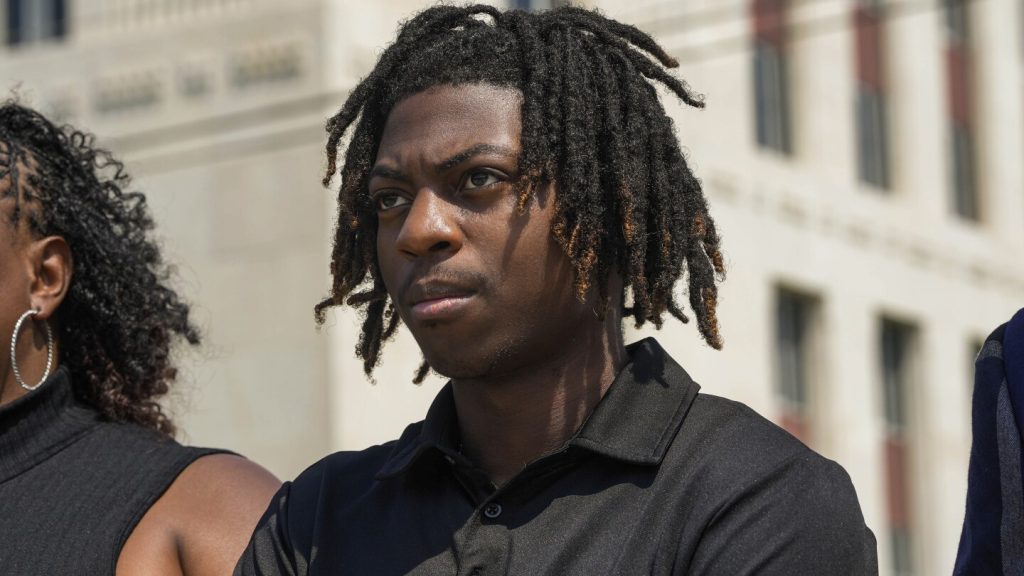A Black high school student in Texas, Darryl George, has been embroiled in a legal battle with his school district, Barbers Hill, over his hairstyle. George has been out of his regular classes since August 31 because his tied and twisted locs violate the district’s dress code, which prohibits hair that falls below the collar, eyebrows, or earlobes. The district argues that other students with locs comply with the length policy. George and his mother filed a federal civil rights lawsuit alleging racial and gender discrimination against the district, the superintendent, and other officials, as well as Texas Gov. Greg Abbott and Attorney General Ken Paxton.
The lawsuit claims that George’s punishment violates the CROWN Act, a state law prohibiting race-based hair discrimination. The CROWN Act, which came into effect in September, bars schools and employers from penalizing individuals for their hair textures or protective hairstyles like Afros, braids, locs, twists, or Bantu knots. The suit also alleges violations of George’s First Amendment rights to free speech and expression. Throughout the school year, George has been serving in-school suspension or attending an off-site disciplinary program at Barbers Hill High School.
During a court hearing, George’s attorney argued that the district’s policy is discriminatory and not race neutral. The attorney claimed that the district was making religious exemptions for hair length but not following the CROWN Act for race-based protections. The attorney also argued that the school district lacked clear policies on allowing girls to have long hair while enforcing restrictions on boys. The judge questioned if there was any legal precedent indicating that hair length is protected as expressive conduct under the First Amendment, setting the stage for a precedent-setting case.
The attorney for Barbers Hill school district defended the policy, stating it was race neutral and did not exhibit a sufficient pattern of racial discrimination. The attorney argued that different hair length restrictions for boys and girls do not constitute discrimination and that George’s hairstyle did not communicate a message to the world, thus not violating his First Amendment rights. George’s mother emphasized the cultural and religious significance of his hairstyle, a sentiment echoed by historians who note the cultural importance of hairstyles for many African Americans.
A previous state judge ruled in favor of the school district in a lawsuit, stating that the punishment did not violate the CROWN Act. The school’s hair policy was also challenged in a federal lawsuit by two other students in May 2020, with one student returning to school after a temporary injunction was granted. The lawsuit remains ongoing. After the recent court hearing, George declined to speak, while his attorney mentioned his difficulty in finding a job for the summer due to backlash from those who disagree with the case. The judge indicated that he was likely to dismiss some claims and defendants from the lawsuit in a later ruling.


